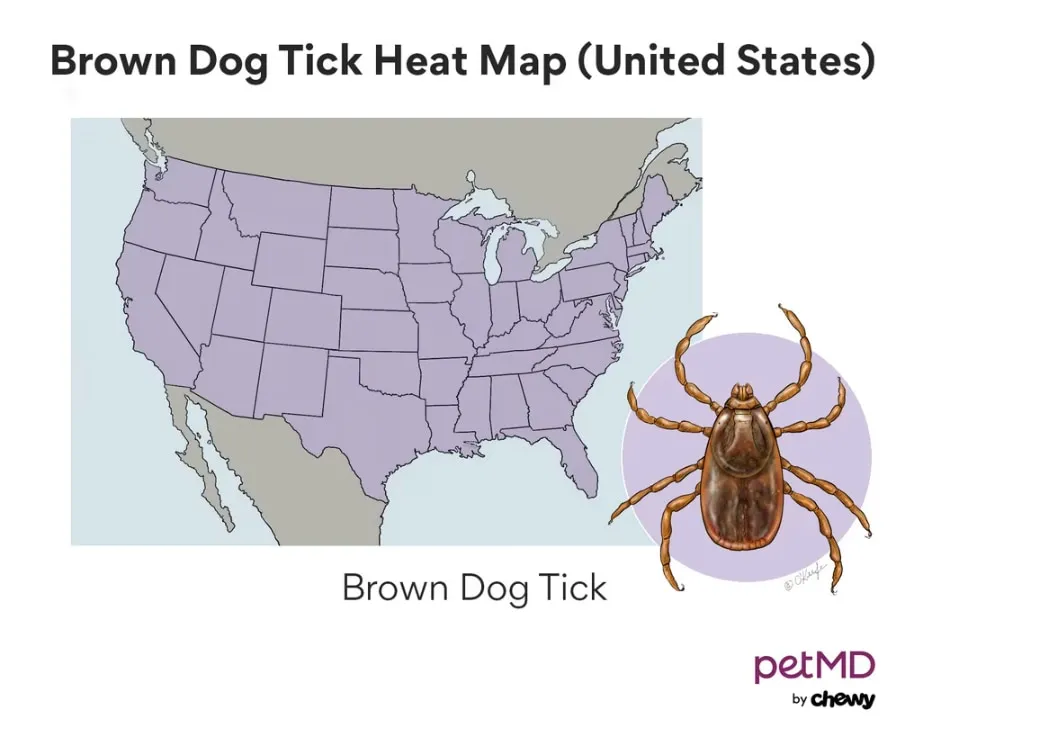Preventative care is paramount to maintaining your dog’s health and happiness. Among the most critical aspects of this care is the consistent use of effective flea and tick preventatives. These tiny parasites pose significant threats, ranging from uncomfortable itching to life-threatening diseases, making year-round protection an absolute necessity for all dogs. Understanding the various options available, particularly when it comes to Flea And Tick Medicine Over The Counter, can empower you to make informed decisions for your beloved canine companion.
While many advanced treatments require a veterinarian’s prescription, a wide array of over-the-counter (OTC) solutions offers accessible protection. This guide will delve into the importance of prevention, factors to consider when selecting a product, and an overview of popular over the counter flea and tick medicine options, helping you navigate the choices to ensure your dog remains free from these unwelcome guests.
Why Flea and Tick Prevention is Crucial for Dogs
Fleas and ticks are more than just a nuisance; they are ectoparasites that survive by feeding on your dog’s blood. Their bites can lead to a cascade of health issues, directly impacting your dog and potentially spreading diseases to both pets and humans.
Direct Health Impacts
The immediate effects of flea and tick bites can be severe. Flea saliva often triggers intense allergic reactions, leading to flea allergy dermatitis, characterized by severe itching, skin inflammation, and secondary infections. In heavy infestations, especially in puppies or small dogs, significant blood loss can even result in anemia. Tick bites can cause localized infections, abscesses, and in rare but serious cases, tick paralysis, which can be fatal if left untreated.
Disease Transmission
Beyond direct irritation, fleas and ticks are notorious vectors for a variety of diseases that can debilitate your dog. Tick-borne illnesses include Lyme disease, Ehrlichiosis, Anaplasmosis, Rocky Mountain Spotted Fever, and Babesiosis, each presenting with a range of symptoms from lameness and lethargy to fever and organ damage. Fleas, while less common as disease vectors than ticks, can transmit tapeworms if ingested and, in rare instances, carry organisms like Bartonella, which can cause “cat scratch disease” in humans, though it’s less common in dogs.
Human Health Risk
The danger posed by these parasites extends beyond your pet. Many tick-borne diseases, such as Lyme disease and Rocky Mountain Spotted Fever, are zoonotic, meaning they can be transmitted from animals to humans. Keeping fleas and ticks off your dog is therefore not just about pet health, but also about safeguarding your family and home environment.
When Do Dogs Need Flea and Tick Prevention?
Fleas and ticks are remarkably resilient and can thrive in diverse geographical areas and climates. This adaptability means they are a year-round threat, not just a seasonal concern.
Year-Round Protection
Due to their hardiness and the diseases they carry, veterinarians universally recommend year-round flea and tick prevention for all dogs, regardless of their lifestyle or the climate. While parasite activity might peak in warmer months, fleas and ticks can survive indoors during winter, often finding refuge in carpets, furniture, or mild outdoor microclimates. Consistent prevention ensures there are no gaps in protection that could allow an infestation to take hold.
Starting Early
It’s important to initiate flea and tick prevention early in a dog’s life. Most preventative products are safe for puppies from 8 weeks of age, though some are formulated for even younger animals (e.g., 6 weeks). Always check the product label for specific age and weight requirements, and consult your veterinarian to choose the most appropriate and safe product for your young dog.
Understanding Flea and Tick Prevention Products
The market offers a diverse range of products designed to combat external parasites. These can be broadly categorized by their mode of action and the types of parasites they target.
Pesticides, Repellents, and Growth Inhibitors
Flea and tick preventatives often contain active ingredients that function as pesticides (killing parasites), repellents (deterring parasites from biting), or insect growth inhibitors (preventing fleas from developing through their life stages). Each mechanism plays a vital role in preventing and controlling infestations. Some products combine these actions for broader protection.
Combination Products: Beyond Fleas and Ticks
Many contemporary flea and tick preventatives, especially prescription-strength options, are “combination” products. These medicines contain multiple active ingredients to offer protection against a wider spectrum of parasites, not just fleas and ticks. They may also safeguard your dog against internal parasites such as heartworms, roundworms, hookworms, and whipworms, as well as external mites (e.g., ear mites, sarcoptic mange mites). Such comprehensive protection simplifies your pet’s preventative care regimen. For a more complete parasite shield, considering a tick and worm treatment for dogs can offer integrated defense against multiple threats.
Key Factors to Consider When Choosing a Product
Selecting the right flea and tick preventative involves more than just picking a brand. Several factors unique to your dog and environment should influence your decision.
Veterinarian Consultation: Your First Step
Before administering any flea and tick medicine over the counter or prescription, a thorough discussion with your veterinarian is crucial. They can assess your dog’s individual needs, health status, and risk factors, guiding you toward the safest and most effective choice. Your vet will ensure:
- The product is appropriate for your pet’s species (dog vs. cat).
- It matches your pet’s correct weight range.
- It protects against prevalent local parasites.
- You understand dosing instructions (e.g., with food, frequency).
- You are aware of the onset of action and bathing restrictions.
- Any potential safety concerns or adverse reactions are understood.
Application Method: Oral vs. Topical
Flea and tick preventatives typically come in two main forms:
- Oral Medications: These are chewable tablets ingested by your dog. They are often convenient and ideal for dogs that dislike topical applications or for households with small children or other pets where accidental contact with topical products is a concern. However, you’ll need to monitor your dog to ensure the entire tablet is consumed and not regurgitated.
- Topical Spot-Ons: These liquids are applied directly to the skin, usually between the shoulder blades or down the back. They are a good option for picky eaters or dogs with sensitive stomachs. Special care is needed after application to prevent children or other animals from touching or licking the treated area until it dries. Topical treatments may also be less effective for dogs who swim frequently or require regular bathing, as water can diminish their efficacy.
Geographic Location: Local Parasite Threats
Different regions harbor different parasite populations. Consulting resources like the Companion Animal Parasite Council (CAPC) can help you identify the specific types of fleas, ticks, and other parasites prevalent in your area. This knowledge is vital for choosing a product that provides targeted protection against the most relevant threats. Dog Ticks Illustrated on a Map
Dog Ticks Illustrated on a Map Tick Species Distribution in the US
Tick Species Distribution in the US Geographic Spread of Tick-Borne Diseases
Geographic Spread of Tick-Borne Diseases Common Tick Habitats for Dogs
Common Tick Habitats for Dogs
Outdoor Access: Assessing Exposure Risk
Consider your dog’s environment and typical outdoor activities. Dogs that frequent dog parks, hiking trails, wooded areas, or even just spend a lot of time in a backyard with tall grass are at higher risk of exposure to fleas and ticks. However, even predominantly indoor dogs are not immune; parasites can hitch a ride on clothing, other pets, or through open windows. Therefore, prevention is recommended for all dogs, regardless of their time spent outdoors.
The MDR-1 Gene: Special Considerations for Certain Breeds
Certain dog breeds, including Collies, Australian Shepherds, and Shetland Sheepdogs, may carry the MDR-1 gene mutation. This mutation impairs their ability to metabolize certain medications, making them more sensitive to some drug classes. While many modern parasite preventatives have been tested for safety in MDR-1 positive dogs, it’s always wise to discuss this with your veterinarian, especially if you own an affected breed. Genetic testing for the MDR-1 gene is available and can provide peace of mind.
Dog’s Lifestyle: Activity Levels and Environments
Your dog’s general lifestyle can influence the type of preventative that suits them best. Highly active dogs, working dogs, or those regularly exposed to dense vegetation might benefit from different product characteristics than a more sedentary indoor companion. Consider factors like frequency of swimming, grooming habits, and interaction with other animals.
Life Stage: Puppies, Seniors, and Breed Size
A dog’s age and size are critical factors in selecting a safe and effective preventative. Most products have minimum age and weight restrictions, typically 8 weeks and a certain poundage. Special formulations are available for puppies and small breeds. Similarly, senior dogs or those with underlying health conditions may require careful consideration.
Medical Conditions: Seizures, Allergies, Pregnancy
Any pre-existing medical conditions must be disclosed to your veterinarian. For instance, some medications in the isoxazoline class (e.g., Bravecto, Credelio, Nexgard, Simparica Trio) should be used with extreme caution in dogs with a history of seizures or neurological disorders. Furthermore, if your dog has a known allergic reaction to a specific medication, is sick, underweight, pregnant, nursing, or intended for breeding, your vet will need to carefully evaluate options to ensure safety. For certain conditions, your vet might recommend a prescription flea medication for dogs to minimize risks.
Over-the-Counter vs. Prescription Flea and Tick Medicine
Understanding the differences between over-the-counter (OTC) and prescription flea and tick medications is vital for making the best choice for your dog.
Over-the-Counter Flea and Tick Medicine: What You Need to Know
Over-the-counter flea and tick medicine products do not require a veterinarian’s prescription and are readily available online, in pet stores, and even some supermarkets. They offer convenience and are often more budget-friendly. These products typically contain active ingredients that are effective against fleas, ticks, or both. However, their potency and spectrum of protection can vary. While convenient, it is always recommended to consult your veterinarian before using any over the counter flea and tick medicine to ensure it is safe, effective, and appropriate for your dog’s specific health profile and regional parasite risks. Your vet can advise on potential interactions, side effects, and whether a particular OTC option truly meets your dog’s needs.
Prescription Flea and Tick Medicine: The Veterinary Advantage
Prescription flea and tick preventatives require authorization from a licensed veterinarian. These products often represent the latest advancements in parasite control, featuring novel active ingredients or combinations that provide broader spectrum protection, faster kill times, and often longer durations of efficacy (e.g., 3 months vs. 1 month). Veterinarians typically recommend prescription products due to their rigorously tested safety profiles and superior effectiveness against a wider range of parasites, including internal parasites like heartworms. While they may carry a higher upfront cost, the comprehensive protection and peace of mind they offer often outweigh the difference, potentially saving on future veterinary bills from parasite-borne illnesses. In some cases, your vet might also suggest looking into best generic flea and tick medicine for dogs as a cost-effective alternative that still provides robust protection.
Popular Flea and Tick Prevention Products for Dogs
Here’s an overview of some widely used flea and tick preventative products, noting whether they are typically over-the-counter or prescription. Always verify current availability and consult your veterinarian for the best choice.
Advantage II (OTC)
Advantage II is a topical monthly product containing imidacloprid and pyriproxyfen. It’s fast-acting, killing fleas (adults, eggs, larvae) and chewing lice within hours. However, it does not provide tick prevention. It’s for dogs and puppies over 7 weeks old and weighing more than 3 pounds.
Advantage Multi (Prescription)
Advantage Multi (imidacloprid and moxidectin) is a topical monthly solution that treats fleas, sarcoptic mange, and intestinal parasites (hookworms, roundworms, whipworms), and prevents heartworm disease. It kills fleas quickly but offers no tick prevention. Safe for dogs and puppies over 7 weeks and weighing over 3 pounds.
Bravecto (Prescription)
Bravecto, an isoxazoline-class drug (fluralaner), is available as a chewable tablet or topical solution. It’s fast-acting against fleas (within 2 hours) and ticks (within 12 hours) for up to 12 weeks. It also helps control demodectic and sarcoptic mange and ear mites. Use with caution in dogs with a history of seizures or neurological disorders.
Comfortis (Prescription)
Comfortis is a chewable tablet (spinosad) that exclusively treats fleas, killing them within 30 minutes of dosing. It’s a monthly medication for dogs and puppies 14 weeks or older and weighing over 5 pounds. It does not prevent ticks.
Credelio (Prescription)
Credelio (lotilaner), an isoxazoline-class chewable tablet, targets fleas and ticks, beginning to kill fleas within four hours. Administered monthly, it’s for dogs and puppies over 8 weeks old and weighing more than 4.4 pounds. Caution is advised for dogs with a history of seizures or neurological disorders.
Credelio Quattro (Prescription)
Credelio Quattro is a comprehensive chewable tablet containing lotilaner (fleas, ticks), moxidectin (heartworms, hookworms, roundworms), praziquantel (tapeworms), and pyrantel (hookworms, roundworms). This monthly preventative offers broad-spectrum protection for dogs and puppies 8 weeks and older, weighing at least 3.3 pounds.
Frontline Gold (OTC)
Frontline Gold is a topical monthly product (fipronil, (s)-methoprene, pyriproxyfen) that kills fleas, ticks, and chewing lice within hours. Suitable for dogs and puppies over 8 weeks old and weighing more than 5 pounds.
Frontline Plus (OTC)
Similar to Frontline Gold, Frontline Plus (fipronil and (s)-methoprene) is a topical monthly treatment for fleas, ticks, and chewing lice. It’s fast-acting but may take slightly longer than Frontline Gold. For dogs and puppies over 8 weeks old and weighing more than 5 pounds.
Frontline Shield (OTC)
Frontline Shield (fipronil, permethrin, pyriproxyfen) is a topical monthly product that kills fleas, ticks, chewing lice, and stable flies, while also repelling mosquitoes, stable flies, and ticks. It begins killing fleas in five minutes and ticks within one hour. For dogs and puppies over 9 weeks old and weighing more than 5 pounds. Crucially, this product is highly toxic to cats and should be used with extreme caution or avoided in multi-pet households.
K9 Advantix II (OTC)
K9 Advantix II (imidacloprid, permethrin, pyriproxyfen) is a topical monthly product that repels and kills fleas, ticks, mosquitoes, and chewing lice, and also repels biting flies. It’s fast-acting, typically within hours. For dogs and puppies over 7 weeks old and weighing more than 4 pounds. Like Frontline Shield, this product is highly toxic to cats and requires extreme caution in households with feline companions.
Nexgard (Prescription)
Nexgard (afoxolaner), an isoxazoline-class chewable tablet, is effective against fleas, deer ticks, American dog ticks, brown dog ticks, and Lone Star ticks. It also has extra-label uses for sarcoptic and demodectic mange. It starts killing fleas within four hours and ticks within 48 hours. This monthly product is for dogs and puppies over 8 weeks old and weighing more than 4 pounds. Caution is advised for dogs with a history of seizures or neurological disorders.
Onguard Plus (OTC)
Onguard Plus (fipronil and (s)-methoprene) is a topical monthly product that kills fleas, ticks, sarcoptic mange, and chewing lice. It’s safe for dogs and puppies over 8 weeks old and weighing more than 5 pounds.
Seresto (OTC)
The Seresto flea and tick medicine for dogs collar contains imidacloprid and flumethrin, offering protection against fleas and ticks for up to eight months. Fleas are killed within 24 hours and ticks within 48 hours of application. Its efficacy might decrease with frequent bathing or swimming, potentially requiring replacement every five months. It’s suitable for dogs and puppies over 7 weeks of age.
Simparica Trio (Prescription)
Simparica Trio is a chewable tablet (sarolaner, moxidectin, pyrantel), with sarolaner belonging to the isoxazoline class. It treats fleas, ticks, roundworms, and hookworms, and prevents heartworm disease. It can also be used extra-label for demodectic mange, sarcoptic mange, and ear mites. It begins killing fleas and ticks within 12 hours. For dogs and puppies over 8 weeks old and weighing more than 2.8 pounds. Caution is advised for dogs with a history of seizures or neurological disorders.
Trifexis (Prescription)
Trifexis (spinosad and milbemycin oxime) is a chewable tablet effective against fleas, hookworms, roundworms, and whipworms, and also prevents heartworm disease. It’s a fast-acting drug, killing fleas within 30 minutes, but it does not protect against ticks. For dogs and puppies 8 weeks or older and weighing over 5 pounds.
Vectra 3D (OTC)
Vectra 3D (dinitefuran, permethrin, pyriproxyfen) is a topical monthly product that repels and kills fleas, ticks, mosquitoes, chewing lice, sand flies, biting flies, and some mites. It begins killing parasites within hours. For dogs and puppies over 8 weeks old and weighing more than 5 pounds. Similar to K9 Advantix II and Frontline Shield, this product is highly toxic to cats and requires extreme caution or avoidance in households with cats.
Conclusion
Protecting your dog from fleas and ticks is a fundamental aspect of responsible pet ownership. These ubiquitous parasites pose a continuous threat, capable of causing discomfort, allergic reactions, and transmitting serious, sometimes life-threatening, diseases to both pets and humans. Whether you opt for flea and tick medicine over the counter or a prescription product, the key is consistent, year-round prevention tailored to your dog’s specific needs and environment.
Always initiate your preventative care plan with a thorough consultation with your veterinarian. Their expertise is invaluable in assessing your dog’s health, lifestyle, and local parasite risks to recommend the safest and most effective solution. By staying informed and proactive, you can ensure your dog enjoys a healthy, happy, and parasite-free life.
References
- PetMD. (n.d.). Best Flea and Tick Medications for Dogs. Retrieved from https://www.petmd.com/dog/vet-verified/best-flea-tick-medications-for-dogs
- PetMD. (n.d.). Flea Bite Hypersensitivity (Dermatitis) in Dogs. Retrieved from https://www.petmd.com/dog/conditions/skin/c_multi_flea_bite_hypersensitivity
- PetMD. (n.d.). Anemia in Dogs. Retrieved from https://www.petmd.com/dog/conditions/systemic/anemia-dogs
- PetMD. (n.d.). 6 Tick Diseases in Dogs. Retrieved from https://www.petmd.com/dog/conditions/infectious-parasitic/6-tick-diseases-dogs
- PetMD. (n.d.). Heartworm Disease in Dogs. Retrieved from https://www.petmd.com/dog/conditions/infectious-parasitic/c_dg_heartworm_disease
- PetMD. (n.d.). How to Choose a Flea and Tick Pill for Dogs. Retrieved from https://www.petmd.com/dog/parasites/how-choose-flea-and-tick-pill-dogs
- PetMD. (n.d.). 8 Types of Ticks on Dogs. Retrieved from https://www.petmd.com/dog/general-health/8-types-ticks-dogs
- Companion Animal Parasite Council (CAPC). (n.d.). Retrieved from https://capcvet.org/
- PetMD. (n.d.). MDR1 Gene in Dogs. Retrieved from https://www.petmd.com/dog/general-health/mdr1-gene-in-dogs
- PetMD. (n.d.). Dog Seizures. Retrieved from https://www.petmd.com/dog/symptoms/dog-seizures
- PetMD. (n.d.). Dog Pregnancy, Birth, and Puppy Care. Retrieved from https://www.petmd.com/dog/conditions/reproductive/dog-pregnancy-birth-and-puppy-care-complete-guide
- PetMD. (n.d.). Understanding the Flea Life Cycle. Retrieved from https://www.petmd.com/dog/parasites/evr_multi_understanding_the_flea_life_cycle
- PetMD. (n.d.). Sarcoptic Mange in Dogs. Retrieved from https://www.petmd.com/dog/conditions/skin/c_dg_sarcoptic_mange
- PetMD. (n.d.). Hookworms in Dogs. Retrieved from https://www.petmd.com/dog/conditions/infectious-parasitic/c_multi_ancylostomiasis
- PetMD. (n.d.). Roundworms in Dogs. Retrieved from https://www.petmd.com/dog/conditions/infectious-parasitic/c_multi_ascariasis
- PetMD. (n.d.). Whipworms in Dogs. Retrieved from https://www.petmd.com/dog/conditions/infectious-parasitic/c_multi_trichuriasis
- PetMD. (n.d.). Epilepsy in Dogs. Retrieved from https://www.petmd.com/dog/conditions/neurological/epilepsy-dogs
- PetMD. (n.d.). Demodicosis in Dogs. Retrieved from https://www.petmd.com/dog/conditions/skin/c_multi_Demodicosis
- PetMD. (n.d.). Black Fly Bite in Dogs. Retrieved from https://www.petmd.com/dog/general-health/black-fly-bite-dogs
- PetMD. (n.d.). About the Wood Tick. Retrieved from https://www.petmd.com/dog/general-health/about-the-wood-tick
- PetMD. (n.d.). Lone Star Tick. Retrieved from http://www.petmd.com/general-health/lone-star-tick
- PetMD. (n.d.). Praziquantel for Pets. Retrieved from https://www.petmd.com/pet-medication/praziquantel
- PetMD. (n.d.). Pyrantel Pamoate for Pets. Retrieved from https://www.petmd.com/pet-medication/pyrantel-pamoate
- PetMD. (n.d.). Seresto (Flumethrin, Imidacloprid). Retrieved from https://www.petmd.com/pet-medication/seresto-flumethrin-imidacloprid
